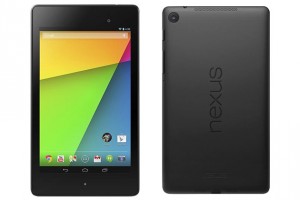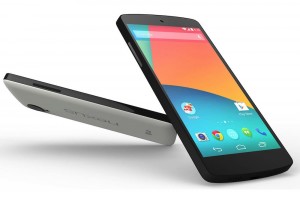
New Nexus 7 2013
I am, as you probably know by this time, into all things tech (with some exceptions) and have been over the last few years been into the smart phone market. Now, when I rummage around and find one of my old Nokia phones, I really wonder how I managed to survive with it. The smart phone market has revolutionised our opinion of what a phone should do, and in fact the phone element of any device seems the part least spoken about.
I have tried a number of smart phones over the years, and have drawn my own conclusions as to which ones are doing what I need then to do, while potentially taking the whole smart phone market further. I am always looking at what we have now, and what we could have in a very short period of time. Apple, as everyone now knows, got this whole snowball rolling and changed the perception of the mobile phone market. Then they launched the first successful tablet computer, not the first though, as Microsoft had tried the idea years earlier – but the market place was not ready for them back in the late 90’s, and they did not take off.
The Battle was on!
After the launch of the first iPhone, the battle for control of the smart phone market was now on. Apple had stolen the early lead with the touch screen phone and tablet market, wrestling market share from Nokia and it’s aging Symbian system. Other phone manufacturers could only try and catch up, some with more success than others.
Today, Nokia mobile are no more – the technology now owned by Microsoft who are using it to drive the Windows platform forward. Motorola Mobile are now owned by Google, a purchase that solidified the patent armoury most corporations have these days. Blackberry did not react fast enough, at time of writing they company is currently facing being sold off to various bidders (including names like Lenovo) in various packages.
The challengers
After their initial domination of the market, Apple began to face a challenge; Google acquired a company called Android, Inc (who unsurprisingly produced the Android operating system) and then got various manufacturers to buy into using Android for smart phone device and tablets – with these manufacturers they formed the Open Handset Alliance in order to further Android sortware and corresponding hardware. It had suddenly stopped being a one horse race, and Apple now had serious competition for their smart phones and tablets.
Through development of Android, Google has continued to push the boundaries of what can be done, and more and more manufacturers have joined the OHA. Apple has stuck to their tactics of premium prices and quality build, backed by a locked down operating system that is partially customisable. The story again, at time of writing, is that there are more Android devices switched on per day than Apple and all other phone operating systems combined.
In an attempt to aim for a premium phone experience, Google have created a range of devices branded Nexus. Hand chosen manufacturers have been asked to build these, and Google work closely with them on the software and hardware designs. The final products run a vanilla build of Android, and are pushed updates instantly as they are released.
This was partially in response to the problem Google encountered with other Android device manufacturers (such as HTC , Samsung etc.) would take the raw Android operating system, and then skin it with their own logos and interfaces in order to brand it as their device. While this allowed these manufacturers to make their phones unique from their competitors, it did mean the end user was at the mercy of the OEM for their Android updates, and many handsets are still several versions of Android behind, despite being less than a year old.
The Nexus Range
The latest incarnations of the Nexus range are the Nexus 5 phone (launched November 2013), and the Nexus 7 tablet (launched July 2013). There is also the Nexus 10 tablet (launched November 2012), but a new one is due to be launched imminently.
The benefits of a Nexus tablet or phone are the instant Android updates, and the fact that it all works with the hardware flawlessly. The devices all synchronise via the cloud, so data transfers seamlessly between them to allow mobile working at its best.
We test drove the Nexus 7 2012 version, and the Nexus 7 2013 version on this very blog – check them out and see what our thoughts and findings were.
So what do the public think?
Does any of this behind the scenes work affect what the public think about their next phone? I think for the majority it probably doesn’t, and it’s the next clever advert that may sell them their next phone. But for anyone who is, dare I say it, slightly geeky and interested in where their phone has come from – and, perhaps even more importantly, interested in where their phone might be going, this info might just sway their opinion.
What is your take on mobile development and where it might be going?
Thanks to Graham Thomson for his input into this article.
 We haven’t managed to get our hands on a new Nexus 5 here at IT Tech Point yet so we are always interested in what others are saying and are constantly reading reviews.
We haven’t managed to get our hands on a new Nexus 5 here at IT Tech Point yet so we are always interested in what others are saying and are constantly reading reviews.
